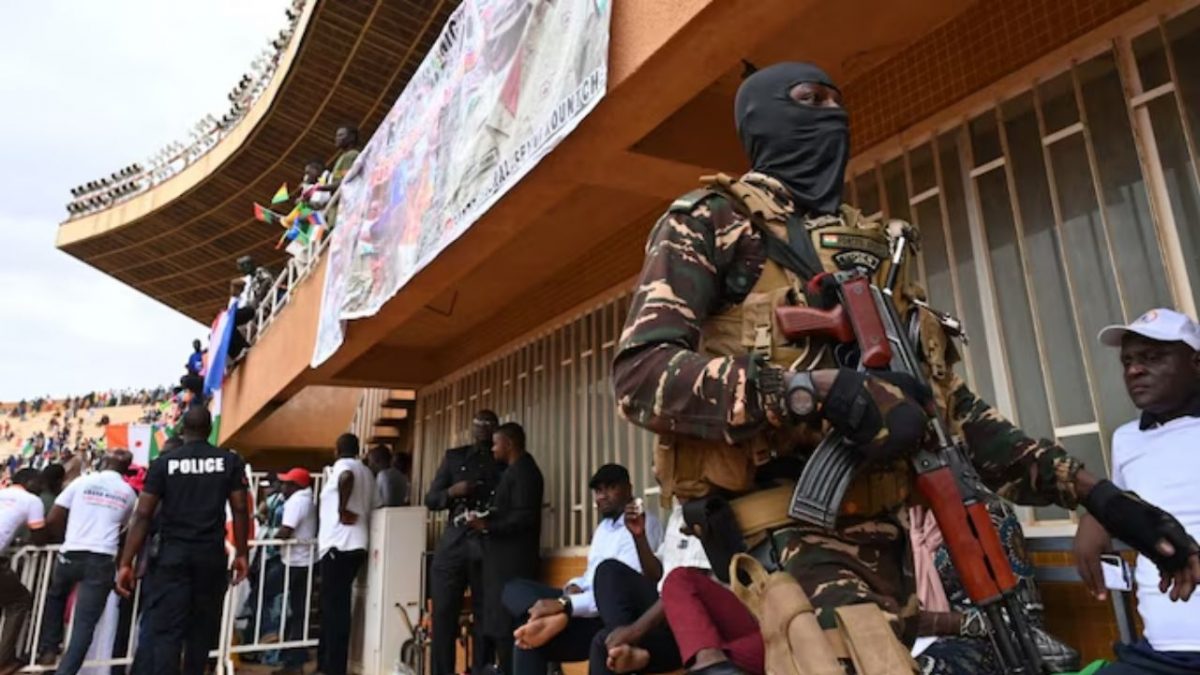2 Indians shot dead in Niger, third kidnped by armed group; embassy seeks safe release
)
Two Indian Nationals Killed, One Abducted in Niger Attack
Niamey: At least two Indian nationals were killed and a third abducted in a violent attack in Niger's southwestern Dosso region on Tuesday, according to confirmation from Indian authorities. The incident underscores the escalating security challenges and the increasing risk to foreigners operating in the conflict-ridden nation.
Embassy Working on Repatriation and Rescue
The Indian Embassy in Niger confirmed the attack via a post on X (formerly Twitter) on Friday, July 18th. The embassy stated that it is actively coordinating with local authorities to repatriate the bodies of the deceased and to secure the safe release of the abducted Indian national. Details regarding the identities of the victims and the circumstances surrounding the kidnapping remain limited as investigations are ongoing.
Dosso Region: A Hotspot of Instability
The Dosso region, where the attack occurred, has become increasingly volatile in recent years, plagued by the presence of various armed groups, including jihadist organizations linked to al-Qaeda and the Islamic State. These groups frequently target both local populations and foreign workers, disrupting economic activity and exacerbating the existing humanitarian crisis. The porous borders with neighboring Mali and Burkina Faso contribute to the ease with which these groups operate, making the region difficult to secure.
Regional Instability and the Sahel Crisis
The attack highlights the broader security crisis engulfing the Sahel region of Africa. Niger, along with its neighbors Mali and Burkina Faso, has been battling a surge in extremist violence, driven by factors such as poverty, weak governance, and the proliferation of weapons. The withdrawal of international forces from the region, particularly French troops, has further complicated the security landscape, creating opportunities for armed groups to expand their influence.
Expert Perspective: The Escalating Threat to Foreign Nationals
Dr. Fatima Diallo, a security analyst specializing in the Sahel region at the University of Dakar, Senegal, commented on the incident. "The targeting of foreign nationals in Niger is a worrying trend. It reflects the growing desperation of these armed groups who are seeking to gain leverage and resources through kidnapping for ransom. It also demonstrates their ability to operate with impunity in certain areas, despite the efforts of the Nigerien security forces and international partners." Dr. Diallo further emphasized the need for a comprehensive approach that addresses the root causes of the conflict, including poverty and lack of opportunities for young people.
Historical Context: Foreign Involvement in Niger
Niger has historically been a recipient of significant foreign aid and investment, particularly in the mining and energy sectors. Foreign companies and workers are involved in the extraction of uranium, a key resource for Niger. However, this foreign presence has also made them targets for armed groups seeking to disrupt economic activity and undermine the authority of the state. The security situation has significantly deteriorated since the 2010s, leading to increased risks for foreign nationals residing and working in the country.
Impact on India-Niger Relations
The incident is likely to strain relations between India and Niger, although both countries have traditionally maintained cordial ties. India has been a significant provider of development assistance to Niger, particularly in the areas of agriculture and infrastructure. The safety and security of Indian nationals in Niger will undoubtedly become a key priority for the Indian government, potentially leading to increased security cooperation and diplomatic pressure on Nigerien authorities to address the security challenges in the region.
Analytical Viewpoint: Long-Term Implications
According to geopolitical risk analyst, Mr. Rohan Gupta, "This incident will force a reassessment of risk profiles for Indian companies and individuals operating in Niger and the wider Sahel region. It could lead to a reduction in foreign investment and a greater emphasis on security measures, potentially hindering economic development efforts. The Indian government will need to work closely with Nigerien authorities to ensure the safety of its citizens and to address the underlying security challenges that are fueling the violence."
The Indian Embassy continues to monitor the situation closely and provide assistance to the families of the victims. Further updates will be provided as more information becomes available.
Originally sourced from: Firstpost
